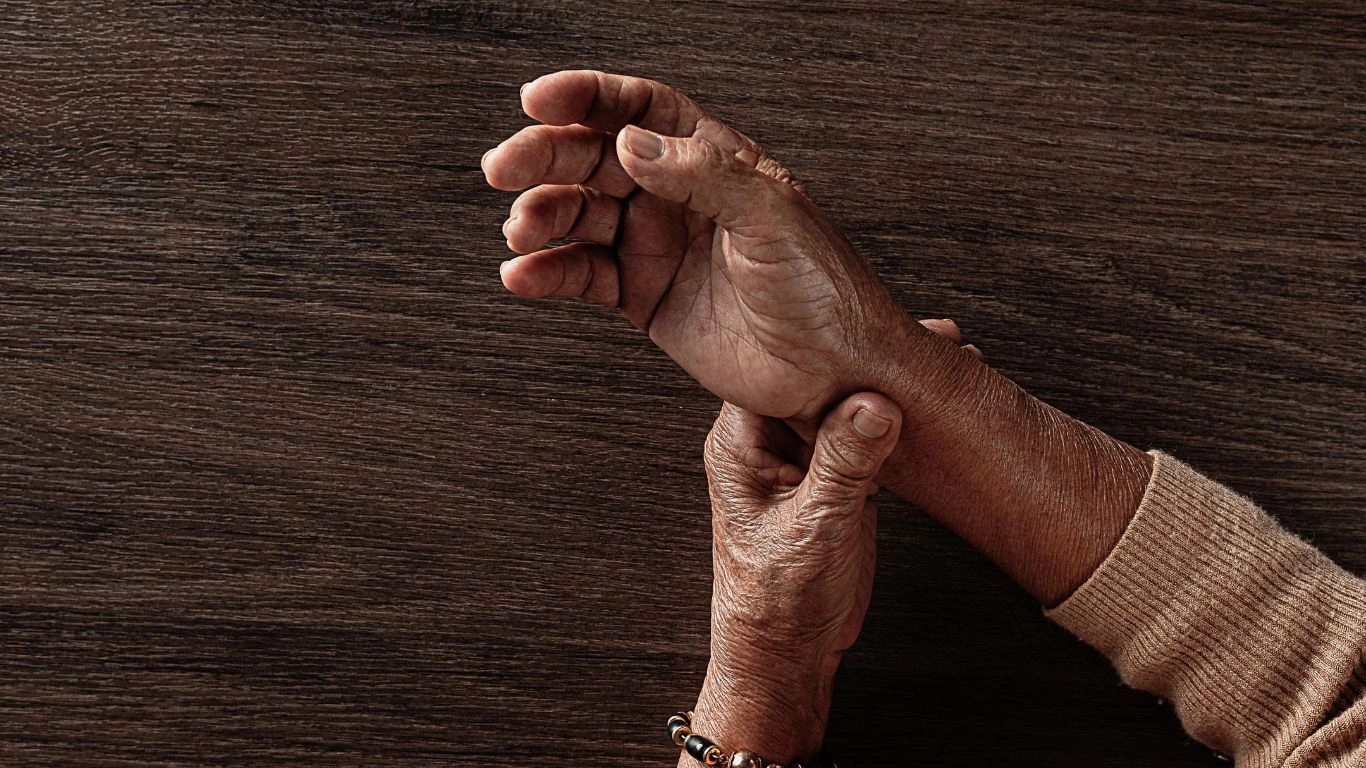How to Manage Weight with Rheumatoid Arthritis: Proven Tips That Work
Living with rheumatoid arthritis (RA) can be a daily challenge, and when it comes to managing your weight, things can feel even more complicated. As someone who has spent years working as a Rheumatology nurse practitioner, I’ve seen firsthand how weight management plays a significant role in how people with RA manage their symptoms. If you’re wondering how to manage weight with rheumatoid arthritis, you’re not alone. In this article, we’ll dive into strategies, practical tips, and a little of my personal experience on how you can take control of your health while managing the challenges that come with RA.
Understanding the Link Between RA and Weight
Rheumatoid arthritis affects more than just your joints. It’s a chronic inflammatory condition that can influence your metabolism and overall energy levels. Many people with RA find themselves gaining weight due to the medications they take, the reduced mobility that often comes with the condition, or even changes in appetite caused by pain and fatigue. So, how can you manage weight when your body seems to be working against you?
First, let’s talk about why weight management is particularly important for those with RA. Research shows that carrying excess weight can worsen symptoms like joint pain and inflammation. This is because additional weight puts more stress on already inflamed joints, especially those in the knees, hips, and lower back. For people with RA, it’s not just about looking good—it’s about keeping your joints happy and minimizing the impact of inflammation on your daily life. But don’t worry, achieving a healthy weight is possible even with RA, and it doesn’t mean you have to be in the gym for hours every day or give up your favorite foods. Let’s break it down.
Why Weight Matters in Rheumatoid Arthritis
Maintaining a healthy weight is crucial for improving your RA symptoms. By managing your weight, you can reduce the strain on your joints, improve your overall mobility, and enhance your quality of life. Here’s a little more insight into why weight plays such a critical role:
- Joint Stress: Carrying excess weight increases the load on weight-bearing joints like the knees and hips, leading to more pain and discomfort.
- Inflammation: Studies suggest that fat tissue can release inflammatory molecules, exacerbating the symptoms of RA.
- Improved Medication Efficacy: Being at a healthy weight can improve how well your RA medications work, allowing you to manage your symptoms more effectively.
Adjusting Your Diet to Support Weight Management
If you’re wondering how to tackle weight management with RA, one of the first things to consider is your diet. But don’t panic! You don’t have to follow a restrictive, bland eating plan to manage your weight. Instead, focus on eating nutrient-dense foods that not only support your weight goals but also help reduce inflammation.
Anti-Inflammatory Diet
One of the most powerful tools for managing both weight and RA symptoms is adopting an anti-inflammatory diet. The goal is to reduce the inflammation in your body, which will not only help with weight loss but also with joint health. Some of the best foods to incorporate into your meals include:
- Fruits and Vegetables: These are packed with antioxidants, vitamins, and minerals that help fight inflammation. Aim for a variety of colors on your plate—think leafy greens, berries, and cruciferous veggies like broccoli and cauliflower.
- Omega-3 Rich Foods: Foods like salmon, flaxseeds, and walnuts are rich in omega-3 fatty acids, which have been shown to help reduce inflammation and improve heart health.
- Whole Grains: Whole grains like quinoa, brown rice, and oats provide fiber, which helps manage weight by keeping you full longer.
- Healthy Fats: Incorporate healthy fats like those found in olive oil and avocado. These fats support heart health and can help you feel satisfied.
But you don’t have to give up all your favorite foods—just make sure you balance them out with nutrient-dense choices. For example, enjoy a small portion of chocolate or your favorite dessert, but pair it with a side of fresh fruit or a handful of nuts.
Portion Control and Mindful Eating
When it comes to weight management, portion control is key. Many of us don’t realize how much we’re eating until we really pay attention. My advice is to eat mindfully—take the time to savor each bite and listen to your body’s signals about hunger and fullness. Here are a few tips:
- Smaller Plates: Using smaller plates can help trick your brain into thinking you’re eating more than you actually are. It’s a simple trick that can help with portion control.
- Eat Slowly: It takes about 20 minutes for your brain to register that you’re full, so slow down and enjoy each meal.
- Stay Hydrated: Sometimes thirst can be mistaken for hunger. Make sure you’re drinking enough water throughout the day.
Exercise: Gentle Moves for Weight Management

Exercise might seem like a daunting task when you’re dealing with RA pain and stiffness, but staying active is one of the best ways to manage your weight and keep your joints moving. It doesn’t have to be intense or time-consuming. In fact, some of the best exercises for RA patients are gentle, low-impact activities that improve flexibility and strength without putting too much stress on your joints.
Low-Impact Activities
Here are a few exercise options that are easy on the joints but still effective for weight management:
- Walking: It’s one of the simplest and most accessible forms of exercise. Walking helps with weight loss and improves joint function without causing unnecessary strain.
- Swimming: Swimming and water aerobics are excellent for RA patients since the buoyancy of the water reduces the impact on your joints while still giving you a full-body workout.
- Cycling: Riding a stationary bike or a regular bike provides cardiovascular benefits without stressing the joints.
Remember, the goal is to find activities you enjoy. Don’t feel pressured to work out for hours. Even just 20-30 minutes of moderate activity a few times a week can make a huge difference in your weight management and overall health.
Medication and Weight: What You Need to Know

If you’re on RA medications, you may have noticed some changes in your weight. Certain medications, like corticosteroids, can lead to weight gain. It’s important to be mindful of these side effects and work with your healthcare provider to manage them. In some cases, adjusting the dose or trying a different medication may be an option. Just make sure to discuss any concerns with your doctor—don’t stop or change any medications without their guidance.
Tips for Managing Medication-Related Weight Gain
Here are some practical tips that can help you navigate weight changes due to RA medications:
- Regular Check-ups: Regularly check in with your doctor to discuss any weight changes and explore medication adjustments.
- Healthy Lifestyle: A balanced diet and regular exercise will help mitigate some of the weight gain associated with certain medications.
- Monitor Your Weight: Keep track of your weight regularly so you can spot changes early and take action.

Managing Stress and Its Impact on Weight with RA
We’ve covered diet, exercise, and medication, but there’s another factor in managing your weight with rheumatoid arthritis that’s often overlooked: stress. As a nurse practitioner, I’ve seen how stress can significantly impact both RA symptoms and weight. It’s no secret that living with a chronic condition can bring a fair share of stress, but did you know that chronic stress can actually lead to weight gain? It’s a vicious cycle: stress increases inflammation, which worsens your RA, and then that pain and discomfort can cause more stress. So, how do we break that cycle?
The Stress-Weight Connection
When you’re stressed, your body releases cortisol, a hormone that can increase appetite and promote fat storage, especially around the belly. For people with RA, this can be even more problematic because cortisol can also increase inflammation in the body, making your symptoms worse. The stress caused by dealing with chronic pain can lead to unhealthy eating habits (like stress eating), which further complicates weight management.
Managing stress is crucial—not just for mental health but for your physical health as well. If you’re dealing with RA and stress is getting in the way of managing your weight, here are a few methods to keep it in check:
- Mindfulness and Meditation: Mindfulness practices like meditation or yoga can help calm the mind and reduce cortisol levels. Taking a few minutes each day to focus on your breath or practice guided meditation can make a world of difference.
- Deep Breathing Exercises: Simple breathing exercises, like the 4-7-8 method, help activate your parasympathetic nervous system, which helps lower stress and inflammation.
- Relaxation Techniques: Progressive muscle relaxation or even just taking time for a relaxing bath can help reduce physical tension, which often goes hand-in-hand with mental stress.

Sleep and Weight Management: The Overlooked Connection
Another factor that plays a crucial role in managing your weight with RA is sleep. If you’re not getting enough rest, your body might be fighting an uphill battle in terms of weight control. This is something I’ve personally seen with many of my patients—poor sleep can sabotage your best efforts to lose weight, and it’s especially true when you’re dealing with a chronic condition like RA.
How Sleep Affects Weight and RA
Lack of sleep has been linked to increased hunger and cravings for unhealthy foods, particularly those high in sugar and fats. But beyond just cravings, insufficient sleep can also disrupt your body’s ability to process insulin, making it harder to lose weight or maintain a healthy weight. For people with RA, poor sleep can exacerbate pain and inflammation, creating a vicious cycle of discomfort and stress that further complicates weight management.
If you’re not sleeping well, it can be tempting to turn to caffeine or sugar to get through the day. However, these short-term fixes can make your inflammation and weight issues worse in the long run. So, what can you do to improve your sleep quality and make weight management a bit easier?
Tips for Improving Sleep
- Establish a Sleep Routine: Going to bed and waking up at the same time every day can help regulate your body’s internal clock and improve sleep quality.
- Limit Stimulants: Avoid caffeine and heavy meals right before bed. Also, try to limit screen time to help your body prepare for rest.
- Comfortable Sleep Environment: Create a peaceful sleeping environment with a comfortable mattress, cool temperature, and dim lighting.
Supplements That May Support Weight Management with RA

In addition to diet and exercise, certain supplements may also play a role in supporting weight management and overall joint health for those with RA. While supplements shouldn’t replace a healthy diet, they can provide additional support. Here are some that I’ve found helpful for my patients who struggle with both RA and weight management:
Omega-3 Fatty Acids
We’ve already mentioned omega-3s as part of a healthy diet, but it’s worth repeating. Omega-3 fatty acids are known for their anti-inflammatory properties and can help reduce RA-related inflammation. Some studies even suggest that omega-3 supplements can support weight loss by improving fat metabolism. You can find omega-3s in foods like salmon, flaxseeds, and walnuts, or you can take them in supplement form. I’ve had patients tell me they noticed less joint stiffness and a slight decrease in weight after adding omega-3 supplements to their daily routine.
Vitamin D
Vitamin D is essential for bone health, and there’s also evidence that it can help with weight management. People with RA are often at risk of vitamin D deficiency, especially if they’re limited in their sun exposure. Taking a vitamin D supplement may help improve your overall health, support your immune system, and potentially aid in weight management. However, always check with your doctor before adding a new supplement to your routine.
Probiotics
Probiotics, or “good” bacteria, help maintain a healthy gut and may also play a role in regulating weight. Some studies have shown that taking a probiotic supplement can help with inflammation and fat storage, both of which are concerns for RA patients. Probiotics can also improve digestion and may enhance the absorption of nutrients, making it easier for you to get the most out of your diet. I’ve seen patients with RA who reported improvements in both gut health and weight when they incorporated probiotics into their regimen.
Hydration: Not Just for Your Skin, But for Your Joints

We often hear about the importance of staying hydrated for skin health, but hydration is also essential for joint health and weight management—especially for those with RA. Dehydration can make the pain and stiffness of RA worse, and it can also cause you to feel sluggish, which can impact your ability to exercise or stick to healthy eating habits.
Why Hydration Matters for RA and Weight Management
Proper hydration helps lubricate your joints, reducing pain and stiffness. Additionally, drinking enough water can help with appetite control and digestion. Sometimes, we mistake thirst for hunger, which can lead to overeating. Staying hydrated can keep your appetite in check and help you make healthier choices throughout the day.
So, make sure you’re drinking enough water—aim for at least eight 8-ounce glasses a day, or more if you’re active. Adding a slice of lemon or cucumber to your water can make it more refreshing, and drinking herbal teas can also contribute to your hydration goals.
Creating a Long-Term Plan for Weight Management with RA
Managing your weight with rheumatoid arthritis is not a quick fix; it’s a long-term commitment. As a nurse practitioner, I’ve often had patients who expect rapid results, but managing RA requires a gradual and sustained approach. In this section, we’ll explore how to create a sustainable, long-term plan for weight management, focusing on consistency and balance. The goal isn’t perfection—it’s progress.
Setting Realistic Goals
One of the most important steps in managing your weight with RA is setting realistic and achievable goals. When you’re dealing with a chronic condition, it’s easy to get discouraged if results don’t come as quickly as you’d like. Trust me, I’ve worked with many patients who’ve been frustrated with their progress. It’s important to remember that even small steps forward are progress. If your goal is to lose weight, aim for 1-2 pounds per week. Quick weight loss can often lead to muscle loss and other complications, so slow and steady wins the race.
Along with weight loss goals, consider setting other health-related targets, such as:
- Improving Joint Mobility: Set goals around how much you want to increase your range of motion or how long you’d like to walk without pain.
- Building Strength: Aim to increase muscle strength through gentle exercises like resistance training or yoga.
- Managing Stress: Develop a plan for reducing stress through relaxation techniques, meditation, or spending more time outdoors.
Finding Support: The Power of Community
As you embark on your weight management journey with RA, it’s crucial to find a support system. This condition can sometimes make you feel isolated, especially on the tougher days when pain or fatigue set in. However, having a support system is one of the most effective ways to stay on track and motivated.
Online Communities and Social Support
Today, there are countless online forums and social media groups where people with RA share their experiences, tips, and encouragement. I’ve seen many patients benefit from joining these communities. They provide a safe space where people can discuss everything from medication options to coping strategies for pain and weight issues. Sometimes, just knowing you’re not alone can make a big difference in staying motivated.
Don’t underestimate the power of in-person support as well. Whether it’s a friend, family member, or healthcare provider, having someone who understands your struggles can help you push through tough moments. Some people also find that working with a dietitian or a personal trainer who has experience with RA can offer personalized guidance tailored to their needs.
Celebrating Small Wins
As you move forward with your weight management plan, don’t forget to celebrate your small victories along the way. Whether it’s sticking to your healthy eating plan for a week, hitting a new exercise milestone, or simply having a day with less pain, acknowledging these achievements can keep you motivated. These moments of success are often just as important as the bigger goals, and they deserve to be celebrated!
References
For more information on managing rheumatoid arthritis and weight, check out the following resources:
Disclaimer
The information provided in this article is for educational purposes only and should not be considered as medical advice. Always consult with your healthcare provider before making any changes to your diet, exercise, or medication regimen. Each individual’s experience with rheumatoid arthritis is unique, and what works for one person may not be suitable for another.

Maintaining a Positive Mindset for Long-Term Success
Finally, one of the most important elements of managing your weight with rheumatoid arthritis is maintaining a positive mindset. It’s easy to get discouraged when things don’t go as planned, but remember that setbacks are a part of the journey. Even though RA can be challenging, having a positive outlook can help you stay motivated and focused on your long-term goals.
Mindset Tips for Managing RA and Weight
- Focus on What You Can Control: While you can’t control every aspect of RA, you can control how you eat, move, and manage your stress. Focus on making small, positive changes that will help you feel better.
- Be Kind to Yourself: Living with a chronic condition is tough, so be gentle with yourself when things don’t go as planned. Celebrate the progress, no matter how small, and understand that perfection isn’t the goal.
- Practice Patience: The road to better health is a marathon, not a sprint. If you slip up, don’t beat yourself up. Just get back on track and keep moving forward.
Over time, these positive mental shifts will become habits that make the weight management process feel more natural and less daunting. You’ll start to see that managing RA and weight is a continuous process of taking small, intentional steps toward a healthier life.
By focusing on all aspects of your well-being—nutrition, exercise, sleep, stress management, and mindset—you’ll be setting yourself up for success in both managing your rheumatoid arthritis and maintaining a healthy weight.

Tarra Nugroho is a dedicated Nurse Practitioner with a strong foundation in family and preventive care. She brings both compassion and clinical expertise to her practice, focusing on patient-centered care and health education. As a contributor to Healthusias.com, Tarra translates medical knowledge into clear, empowering articles on topics like women’s health, chronic disease management, and lifestyle medicine. Her mission is simple: help people feel seen, heard, and informed—both in the clinic and through the content she creates. When she’s not caring for patients, Tarra enjoys weekend hikes, plant-based cooking, and curling up with a good health podcast.






